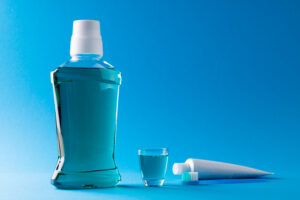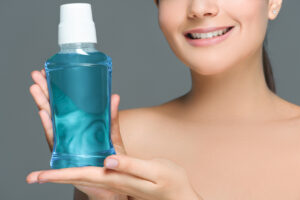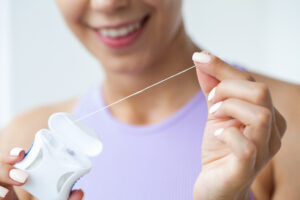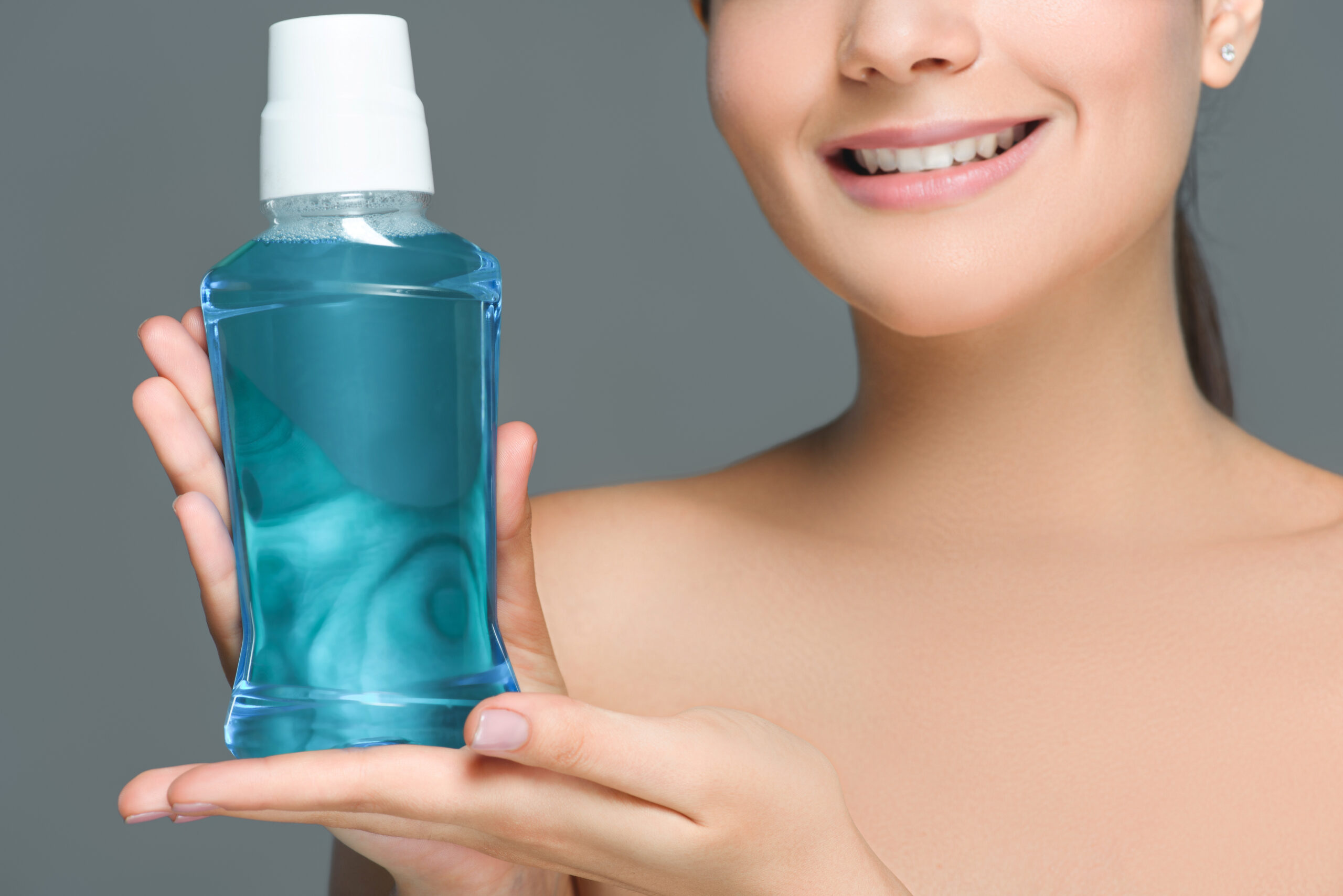When it comes to taking care of your teeth and gums, many people wonder about the correct order for using oral hygiene products. One common question is whether you should use mouthwash before or after brushing. Mouthwash can play an important role in keeping your mouth clean and fresh, but the timing of its use can affect how well it works.
In this article, we’ll explore the answer to this question and cover related topics such as the correct order for oral hygiene, how long you should wait to use mouthwash after brushing, and whether you should use mouthwash before bed. By the end, you’ll have a better understanding of how to get the most out of your oral care routine.
What is the Correct Order for Oral Hygiene?
A complete oral hygiene routine generally includes brushing, flossing, and using mouthwash. But what’s the best order for these steps?

Here’s the general recommendation for a well-rounded oral care routine:
- Floss First: Start with flossing to remove plaque and food particles between your teeth that your toothbrush may not reach. Flossing first helps clear away debris, allowing toothpaste to make better contact with the surfaces of your teeth during brushing.
- Brush Second: After flossing, brush your teeth for at least two minutes with a fluoride toothpaste. Make sure to brush all surfaces of your teeth—front, back, and chewing surfaces—using gentle circular motions.
- Mouthwash Last: Use mouthwash as the final step. Mouthwash helps kill any remaining bacteria and leaves your mouth feeling fresh. Some mouthwashes also contain fluoride, which can further help protect your teeth from decay.
By following this order, you ensure that you’re cleaning your mouth as thoroughly as possible. Mouthwash can rinse away the remaining bacteria and particles after brushing and flossing, which gives you a cleaner and fresher mouth.
Should I Use Mouthwash Before or After Brushing?
While many people use mouthwash after brushing, some wonder whether using it before brushing might offer any advantages. The simple answer is that it’s typically more effective to use mouthwash after brushing.
Here’s why:
- Fluoride Toothpaste Benefits: Most toothpastes contain fluoride, which strengthens your tooth enamel and helps prevent cavities. When you brush, the fluoride in the toothpaste coats your teeth and continues to protect them. If you use mouthwash right after brushing, especially if the mouthwash doesn’t contain fluoride, you might rinse away the protective fluoride from your toothpaste, reducing its effectiveness.
- Mouthwash’s Purpose: Mouthwash helps kill bacteria, reduce plaque, and freshen your breath. Using it after brushing helps ensure that any remaining bacteria in your mouth are eliminated. Brushing first removes food particles and plaque, allowing the mouthwash to target the bacteria more effectively.
- Professional Recommendations: Many dentists recommend brushing first, followed by mouthwash, to maximize the benefits of both products. This is particularly important if you’re using a fluoride toothpaste and don’t want to wash it away.
So, while it’s not harmful to use mouthwash before brushing, it’s generally more effective to save it for after brushing, especially if you’re using a fluoride toothpaste.
How Long Should You Wait to Use Mouthwash After Brushing?
If you’re using a fluoride toothpaste, it’s a good idea to wait about 30 minutes after brushing before using mouthwash. This allows the fluoride from your toothpaste to fully absorb into your teeth, providing maximum protection against cavities.

If you use mouthwash immediately after brushing, especially a non-fluoride mouthwash, you might rinse away the fluoride before it has a chance to do its job. Waiting for about 30 minutes helps ensure that the fluoride remains on your teeth and continues to protect them.
However, if you’re using a fluoride mouthwash, you can use it right after brushing without worrying about rinsing away the fluoride. In this case, the fluoride from the mouthwash will add an extra layer of protection to your teeth.
Should I Use Mouthwash Before Bed?
Using mouthwash before bed can be a great way to maintain good oral hygiene and keep your mouth clean overnight. Nighttime is when your mouth is most vulnerable to bacteria buildup, since saliva production decreases while you sleep. Saliva helps wash away bacteria, so without it, bacteria can thrive and lead to problems like plaque buildup and bad breath.
Here’s why using mouthwash before bed is a smart move:
- Kills Bacteria: Mouthwash helps eliminate bacteria that can cause bad breath, plaque, and gum disease. By using it before bed, you can reduce the amount of harmful bacteria in your mouth while you sleep.
- Freshens Breath: Mouthwash leaves your mouth feeling clean and fresh, helping you wake up with better breath in the morning.
- Extra Fluoride Protection: If you use a fluoride mouthwash, it can provide an additional layer of protection for your teeth overnight, helping to prevent cavities.
Just remember to brush and floss before using mouthwash at night to ensure your mouth is as clean as possible before you go to sleep.
Is Mouthwash Necessary?
While mouthwash can be a helpful addition to your oral care routine, it’s not strictly necessary for everyone. The most important elements of oral hygiene are brushing and flossing. These two actions remove food particles, plaque, and bacteria from your teeth and gums, which are the key factors in preventing tooth decay and gum disease.
However, mouthwash can provide some additional benefits:
- Fights Bad Breath: Mouthwash freshens your breath, which can be especially helpful if you’re prone to bad breath.
- Reduces Bacteria: Some mouthwashes contain antibacterial agents that help kill harmful bacteria in your mouth, reducing your risk of gum disease.
- Contains Fluoride: Fluoride mouthwashes can provide extra protection against tooth decay, particularly for people who are at a higher risk of cavities.
If you have good oral hygiene habits and your dentist hasn’t recommended mouthwash, you may not need it. But for those who struggle with bad breath, gum disease, or frequent cavities, mouthwash can be a beneficial addition to their routine.
Can Mouthwash Replace Brushing and Flossing?
No, mouthwash cannot replace brushing and flossing. While mouthwash has its benefits, it’s not a substitute for brushing and flossing.

Here’s why:
- Mouthwash Can’t Remove Plaque: Brushing and flossing physically remove plaque from your teeth and gums. Mouthwash doesn’t have the ability to remove plaque that’s already on your teeth.
- Mouthwash Doesn’t Clean Between Teeth: Flossing is essential for removing food particles and plaque from between your teeth, where your toothbrush and mouthwash can’t reach.
- Mouthwash Doesn’t Remove Tartar: Tartar is hardened plaque that can only be removed by a dentist or dental hygienist during a professional cleaning. Mouthwash won’t remove tartar that’s already formed on your teeth.
While mouthwash is a helpful addition to your routine, it’s no replacement for the essential tasks of brushing and flossing. Think of it as an extra layer of protection, rather than the main way to keep your teeth clean.
What Types of Mouthwash Should I Use?
There are many different types of mouthwash, each designed for specific oral health needs. Here are a few common types and their benefits:
- Antibacterial Mouthwash: These mouthwashes contain ingredients like chlorhexidine or cetylpyridinium chloride (CPC) that help kill bacteria in your mouth. They’re especially useful for people with gum disease or those looking to reduce plaque and bacteria buildup.
- Fluoride Mouthwash: Fluoride mouthwash provides extra protection against tooth decay by helping to strengthen tooth enamel and prevent cavities. It’s a good choice for people who are prone to cavities or have weak enamel.
- Whitening Mouthwash: Some mouthwashes contain ingredients like hydrogen peroxide that can help whiten your teeth. While these products can’t replace professional whitening treatments, they can help maintain a brighter smile.
- Alcohol-Free Mouthwash: Some people prefer alcohol-free mouthwashes because they’re gentler on the mouth and don’t cause the burning sensation that alcohol-based mouthwashes can. These are a good option for people with sensitive mouths or dry mouth.
- Natural Mouthwash: Natural or herbal mouthwashes often contain ingredients like tea tree oil, aloe vera, or peppermint oil. They’re designed for people who prefer to use products with fewer artificial ingredients.
It’s important to choose a mouthwash that fits your specific needs. If you’re unsure which type is best for you, ask your dentist for recommendations.
Conclusion: Should You Use Mouthwash Before or After Brushing?
In most cases, it’s best to use mouthwash after brushing. Brushing removes plaque and food particles, allowing the mouthwash to work more effectively by killing bacteria and freshening your breath. If you’re using a fluoride toothpaste, wait about 30 minutes after brushing to use a non-fluoride mouthwash, or use a fluoride mouthwash right after brushing for extra protection.
While mouthwash isn’t essential for everyone, it can be a useful addition to your oral hygiene routine, especially for fighting bad breath, reducing bacteria, or protecting against cavities. Just remember that it’s not a substitute for brushing and flossing, which remain the most important steps in maintaining a healthy smile.
By following the right order and using mouthwash appropriately, you can enhance your oral hygiene routine and keep your teeth and gums healthy for years to come.



 Due to recent weather-related closures and delays, select Lane & Associates Family Dentistry offices will have adjusted hours this Friday, January 30th. Some locations will be closing at 2:00 PM, while others will remain open until 5:00 PM. Please contact your local Lane & Associates office to confirm hours and availability.
Due to recent weather-related closures and delays, select Lane & Associates Family Dentistry offices will have adjusted hours this Friday, January 30th. Some locations will be closing at 2:00 PM, while others will remain open until 5:00 PM. Please contact your local Lane & Associates office to confirm hours and availability.